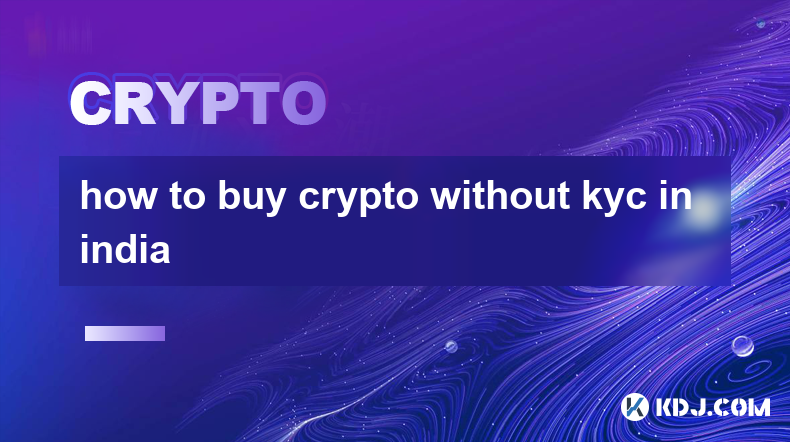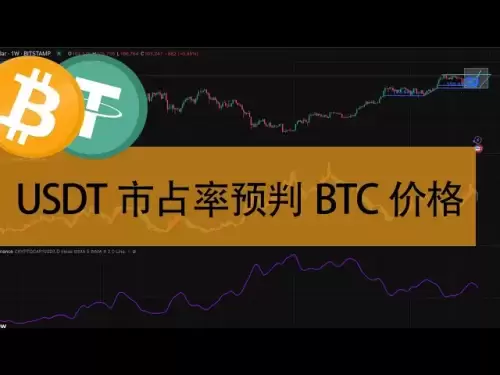-
 Bitcoin
Bitcoin $105,517.1713
2.47% -
 Ethereum
Ethereum $2,579.6029
4.20% -
 Tether USDt
Tether USDt $1.0003
0.01% -
 XRP
XRP $2.4398
4.43% -
 BNB
BNB $653.9860
2.07% -
 Solana
Solana $176.1528
5.16% -
 USDC
USDC $0.9997
0.00% -
 Dogecoin
Dogecoin $0.2362
9.74% -
 Cardano
Cardano $0.7751
2.91% -
 TRON
TRON $0.2731
0.84% -
 Sui
Sui $3.9880
5.45% -
 Chainlink
Chainlink $16.3246
6.50% -
 Avalanche
Avalanche $23.7642
5.57% -
 Stellar
Stellar $0.2970
3.82% -
 Hyperliquid
Hyperliquid $27.1507
2.97% -
 Shiba Inu
Shiba Inu $0.0...01527
7.11% -
 Hedera
Hedera $0.1997
4.91% -
 Bitcoin Cash
Bitcoin Cash $407.4547
4.07% -
 UNUS SED LEO
UNUS SED LEO $8.7046
-2.98% -
 Toncoin
Toncoin $3.1766
3.70% -
 Polkadot
Polkadot $4.9119
5.11% -
 Litecoin
Litecoin $101.5873
4.00% -
 Monero
Monero $344.2948
2.33% -
 Bitget Token
Bitget Token $5.2456
6.30% -
 Pepe
Pepe $0.0...01400
12.72% -
 Pi
Pi $0.7533
9.69% -
 Dai
Dai $0.9998
-0.02% -
 Ethena USDe
Ethena USDe $1.0005
-0.01% -
 Uniswap
Uniswap $6.3019
8.19% -
 Bittensor
Bittensor $439.0738
4.43%
how to buy crypto without kyc in india
When purchasing crypto without KYC, consider non-KYC exchanges, decentralized exchanges (DEXs), or peer-to-peer (P2P) trading platforms for increased privacy and anonymity.
Jan 29, 2025 at 07:43 am

How to Buy Crypto Without KYC in India: A Comprehensive Guide
Key Points:
- Understand the importance of KYC in crypto trading
- Explore non-KYC crypto exchanges
- Utilize decentralized exchanges
- Consider peer-to-peer (P2P) trading platforms
- Use privacy-focused coins
Step 1: Importance of KYC in Crypto Trading
Know Your Customer (KYC) is a regulatory requirement adopted by many crypto exchanges to combat money laundering and other financial crimes. It involves collecting and verifying personal information, such as government IDs, address proofs, and bank statements.
- Benefits of KYC: Enhanced security, fraud prevention, and compliance with regulations.
- Disadvantages of KYC: Privacy concerns, data breaches, and restrictions for certain users.
Step 2: Non-KYC Crypto Exchanges
Non-KYC crypto exchanges allow users to create accounts without providing personal identification. This offers greater privacy and anonymity.
- Advantages: No verification required, quick account creation, suitable for users seeking anonymity.
- Disadvantages: Limited trading features, lower liquidity, potential for scams.
Popular Non-KYC Crypto Exchanges:
- Binance (Binance DEX)
- KuCoin (KuCoin Spot)
- Gate.io
- BKEX
Step 3: Decentralized Exchanges
Decentralized exchanges (DEXs) operate on blockchain networks and do not require KYC for trading. They connect buyers and sellers directly, eliminating the need for a central authority.
- Advantages: Enhanced privacy, censorship resistance, and user control over funds.
- Disadvantages: Limited liquidity, lower trading volume, complex user interface.
Popular DEXs:
- Uniswap
- PancakeSwap
- SushiSwap
- 1inch Network
Step 4: Peer-to-Peer (P2P) Trading Platforms
P2P trading platforms connect individual buyers and sellers who can trade directly with each other without a central exchange.
- Advantages: Greater privacy, flexible payment options, avoidance of KYC checks.
- Disadvantages: Trust issues, potential for fraud, limited liquidity.
Popular P2P Trading Platforms:
- LocalBitcoins
- Paxful
- Binance P2P
- Huobi P2P
Step 5: Privacy-Focused Coins
Privacy-focused coins use advanced encryption and anonymity protocols to protect user data. They can be traded on exchanges or using P2P methods.
- Advantages: Enhanced privacy, anonymity, traceability resistance.
- Disadvantages: Limited liquidity, potential for use in illegal activities.
Popular Privacy-Focused Coins:
- Monero (XMR)
- Dash (DASH)
- Zcash (ZEC)
- Verge (XVG)
FAQs
Q1: Is it safe to buy crypto without KYC?
A1: Non-KYC exchanges and trading platforms can pose potential risks such as scams and fraud. Users should exercise caution and research reputable platforms before making transactions.
Q2: What are the limitations of buying crypto without KYC?
A2: Non-KYC transactions typically have lower trading limits, reduced access to certain features, and potential difficulties in withdrawing large amounts of funds.
Q3: Can I avoid KYC altogether when trading crypto?
A3: While it is possible to buy crypto without KYC through certain platforms, many reputable exchanges and trading platforms require KYC compliance to meet regulatory obligations.
Q4: What are the best ways to protect my privacy when buying crypto?
A4: Consider using privacy-focused coins, decentralized exchanges, or P2P trading platforms that offer enhanced anonymity features.
Q5: Are there any legal implications of buying crypto without KYC?
A5: KYC regulations vary by jurisdiction. In some regions, it may be mandatory to complete KYC before engaging in crypto transactions. Users should consult local laws and regulations to ensure compliance.
Disclaimer:info@kdj.com
The information provided is not trading advice. kdj.com does not assume any responsibility for any investments made based on the information provided in this article. Cryptocurrencies are highly volatile and it is highly recommended that you invest with caution after thorough research!
If you believe that the content used on this website infringes your copyright, please contact us immediately (info@kdj.com) and we will delete it promptly.
- Dogecoin (DOGE) Is Looking to Revive Its Fortunes Amidst a Sudden Surge in On-Chain Activity
- 2025-05-18 23:30:12
- Bitcoin (BTC) Could Reach $500,000 by 2030
- 2025-05-18 23:30:12
- FLOKI Price Is Breaking Out Right Now – But Can It Smash Through These Walls?
- 2025-05-18 23:25:13
- The Next Wave of Tokenomics: 7 Big Changes in the System Behind Crypto Assets
- 2025-05-18 23:25:13
- BNB Price Movement Remains Neutral Despite Spot Market Buying
- 2025-05-18 23:20:13
- Bitcoin (BTC) Price Action May Be Setting the Stage for Significant Moves
- 2025-05-18 23:20:13
Related knowledge

What is Ethereum’s Slashing mechanism and how to punish malicious behavior?
Feb 20,2025 at 03:08am
Key PointsOverview of slashingDifferent types of slashing in EthereumIncentives and consequences of slashingIdentifying and reporting slashed validatorsOngoing discussions and potential improvementsEthereum's Slashing Mechanism: Punishing Malicious BehaviorEthereum's slashing mechanism is an essential tool for ensuring network security and punishing mal...

What is the verifier node of Ethereum and how to become a verifier?
Feb 19,2025 at 06:00pm
The Verifier Node of Ethereum: A Comprehensive GuideKey Points:What is a Verifier Node?How to Become a Verifier NodeResponsibilities and Rewards of a Verifier NodeMinimum Requirements for Becoming a Verifier NodePotential Difficulties in Running a Verifier Node1. What is a Verifier Node?A Verifier Node is an independent entity on the Ethereum network th...

What is Ethereum’s staking, and how to participate and earn money?
Feb 19,2025 at 04:37pm
Key Points:Understanding Ethereum's Staking MechanismSteps to Participate in StakingBenefits and Rewards of StakingSecurity and Risk ConsiderationsTechnical Requirements and Hardware OptionsPotential Challenges and Troubleshooting TipsFAQs on Ethereum StakingWhat is Ethereum's Staking?Proof-of-Stake (PoS) is a consensus mechanism used in blockchain netw...

What is Ethereum’s DAO (Decentralized Autonomous Organization) and how does it work?
Feb 20,2025 at 03:12am
Key PointsDefinition and Structure of a DAOGovernance and Decision-Making in DAOsBenefits and Use Cases of DAOsChallenges and Limitations of DAOsWhat is Ethereum's DAO (Decentralized Autonomous Organization) and How Does It Work?Definition and Structure of a DAOA Decentralized Autonomous Organization (DAO) is an innovative governance and management fram...

What is Ethereum's multi-signature wallet and how to improve security?
Feb 20,2025 at 02:18pm
Key Points:Understanding the Concept of a Multi-Signature WalletBenefits and Drawbacks of Multisig WalletsRequirements for Setting Up a Multisig WalletStep-by-Step Guide to Generating a Multisig WalletImplementing Strategies for Enhanced Security1. Understanding the Concept of a Multi-Signature WalletA multi-signature (multisig) wallet in the Ethereum e...

What is Ethereum's oracle and how to provide data for smart contracts?
Feb 21,2025 at 01:30am
Key Points:Understanding the concept of oracles in EthereumExploring different types of oraclesDetailed guide on how to provide data for smart contractsAddressing potential challenges and considerationsWhat is Ethereum's Oracle?Oracles are crucial components in the Ethereum ecosystem, enabling smart contracts to access real-world data and off-chain even...

What is Ethereum’s Slashing mechanism and how to punish malicious behavior?
Feb 20,2025 at 03:08am
Key PointsOverview of slashingDifferent types of slashing in EthereumIncentives and consequences of slashingIdentifying and reporting slashed validatorsOngoing discussions and potential improvementsEthereum's Slashing Mechanism: Punishing Malicious BehaviorEthereum's slashing mechanism is an essential tool for ensuring network security and punishing mal...

What is the verifier node of Ethereum and how to become a verifier?
Feb 19,2025 at 06:00pm
The Verifier Node of Ethereum: A Comprehensive GuideKey Points:What is a Verifier Node?How to Become a Verifier NodeResponsibilities and Rewards of a Verifier NodeMinimum Requirements for Becoming a Verifier NodePotential Difficulties in Running a Verifier Node1. What is a Verifier Node?A Verifier Node is an independent entity on the Ethereum network th...

What is Ethereum’s staking, and how to participate and earn money?
Feb 19,2025 at 04:37pm
Key Points:Understanding Ethereum's Staking MechanismSteps to Participate in StakingBenefits and Rewards of StakingSecurity and Risk ConsiderationsTechnical Requirements and Hardware OptionsPotential Challenges and Troubleshooting TipsFAQs on Ethereum StakingWhat is Ethereum's Staking?Proof-of-Stake (PoS) is a consensus mechanism used in blockchain netw...

What is Ethereum’s DAO (Decentralized Autonomous Organization) and how does it work?
Feb 20,2025 at 03:12am
Key PointsDefinition and Structure of a DAOGovernance and Decision-Making in DAOsBenefits and Use Cases of DAOsChallenges and Limitations of DAOsWhat is Ethereum's DAO (Decentralized Autonomous Organization) and How Does It Work?Definition and Structure of a DAOA Decentralized Autonomous Organization (DAO) is an innovative governance and management fram...

What is Ethereum's multi-signature wallet and how to improve security?
Feb 20,2025 at 02:18pm
Key Points:Understanding the Concept of a Multi-Signature WalletBenefits and Drawbacks of Multisig WalletsRequirements for Setting Up a Multisig WalletStep-by-Step Guide to Generating a Multisig WalletImplementing Strategies for Enhanced Security1. Understanding the Concept of a Multi-Signature WalletA multi-signature (multisig) wallet in the Ethereum e...

What is Ethereum's oracle and how to provide data for smart contracts?
Feb 21,2025 at 01:30am
Key Points:Understanding the concept of oracles in EthereumExploring different types of oraclesDetailed guide on how to provide data for smart contractsAddressing potential challenges and considerationsWhat is Ethereum's Oracle?Oracles are crucial components in the Ethereum ecosystem, enabling smart contracts to access real-world data and off-chain even...
See all articles























































































